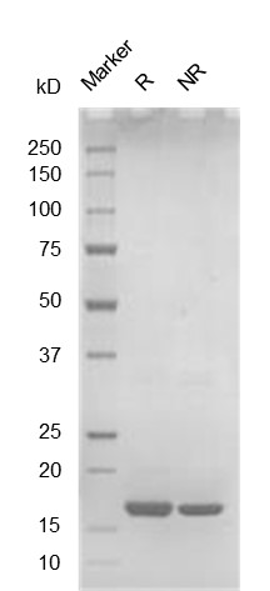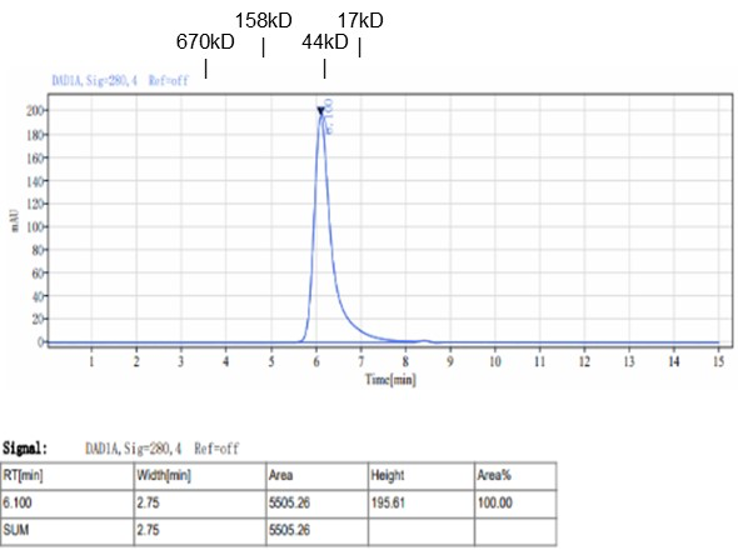mM-CSF(33-187)-His
Description
Macrophage colony-stimulating factor 1 (M-CSF) is a cytokine that plays an crucial role in regulating the survival, proliferation and differentiation of hematopoietic precursor cells, especially mononuclear phagocytes, such as macrophages and monocytes. Eukaryotic cells produce M-CSF to combat intercellular viral infection. It primes and enhances macrophage killing of tumor cells and microorganisms, regulates the release of cytokines and other inflammatory modulators from macrophages, and stimulates pinocytosis. M-CSF promotes the secretion of pro-inflammatory chemokines, thereby playing an important role in innate immunity and inflammatory processes. It contributes to the regulation of osteoclast proliferation and differentiation, as well as bone resorption, and is essential for normal bone development. It is required for normal fertility and pregnancy. It may also be involved in placenta development. M-CSF promotes reorganization of the actin cytoskeleton, regulates membrane ruffles formation, cell adhesion and cell migration. It plays a role in lipoprotein clearance. Upregulation of M-CSF in the infarcted myocardium may have an active role in healing not only through its effects on cells of monocyte/macrophage lineage, but also by regulating endothelial cell chemokine expression. Clinically used for treating infection, malignancies and atherosclerosis. It facilitates hematopoietic recovery after bone marrow transplantation.
Product name | mM-CSF(33-187)-His |
Species | Mus musculus |
Expression system | HEK293 |
Buffer | PBS, pH 7.4 |
Delivery condition | Dry ice (-80°C) |
Delivery Time | 1 week if in stock; 4 weeks if production needed |
Storage condition | Store at -80°C |
Brand | BioMetas |
Applications | Cancer Research, Hematopoiesis, Immune System, Inflammation Research, Stem Cells & Differentiation |
Aliases/Synonyms | MCSF, CSF-1, CSF1, Lanimostim, MGC31930 |
Reference | |
Note | For research use only. Not suitable for clinical or therapeutic use. |
Size | 1mg, 5mg, 10mg, 50mg, 100mg |
Brand | BioMetas |
Product type | Cytokine |
Expression system | HEK293 |
Applications | Cancer Research, Hematopoiesis, Immune System, Inflammation Research, Stem Cells & Differentiation |
Contact Us for a Quote!
Data Gallery
Fig. 1.) 4-20% SDS-PAGE analysis
Recombinant protein was visualized by Coomassie Brilliant Blue R250 staining.

Fig. 2.) SEC-HPLC analysis
Column: Superdex 200 Increase 5/150 GL
Running buffer: 2xPBS, pH 7.4
